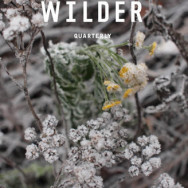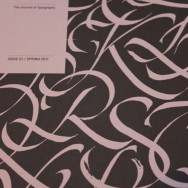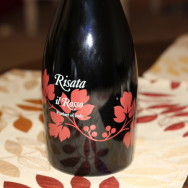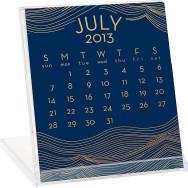I’m always looking for unusual forms of narration, and The Lover’s Dictionary has proved to be quite a delightful twist from the norm in that regard. By distilling a relationship in to it’s most defining and/or memorable moments and finding precisely the right word with which each moment could be summarized is one of the most interesting perspectives on relationships that I have ever encountered. Add to this that the words are organized alphabetically, beginning with “abyss” and ending with “zenith,” hitting on each letter in between, and the fact that it creates a narrative at all is beyond impressive.
The narrative is not necessarily chronological is it arcs from the first date all the way to the breaking point(s) of the relationship, and yet, David Levithan skillfully captured a wide spectrum of emotions without actually concluding the relationship, and without ever actually providing closure of any sort. It is so brief, and yet I could spend many hours pouring over the pages with the Oxford English Dictionary pulled up trying to research the root, history, past use, and current complexity of meanings with each word. Piecing together the many ways in which the word is rightfully assigned to each moment. In addition to that, however, what I found most compelling about this carefully crafted narrative is that it reads, in many ways, like a poem, yet it also reads like a conversation you might have over drinks with a friend who just needs to get some stuff off his chest about his relationship.
A prime example of poetry/casual narrative is the building of a moment splintered across several words: ‘lerry,’ ‘persevere,’ ‘quixotic,’ ‘serrated,’ ‘traverse.’ As I saw the word “leery” end with the line Finally, I said, “It’s over.” I thought the relationship actually did end, but then I continued reading and found the moment continuing under the label of different words. Under “persevere” that moment expanded: Finally, I said, “It’s over. You started to cry, and I quickly said, “No — I mean this part is over. We have to get to the next part.” Again it expands with “quixotic:” ‘Finally, I said, “It’s over.” You started to cry, and I quickly said, “No – I mean this part is over. We have to get to the next part.” And you said, “I’m not sure we can.” And with “serrated:” And you said, “I’m not sure we can.” Then the moment concludes on the word “traverse” which leaves the moment rather ambiguous and that ambiguity is further emphasized by ending on a question: You started to cry, and I quickly said, “No — I mean this part is over. We have to get to the next part.” And you said “I’m not sure we can.” Without even having to think about it, I replied, “Of course we can.” “How can you be so sure?” you asked. And I said, “I’m sure. Isn’t that enough?” I really appreciate the way the words assigned to each portion of this moment relay so much emotion and, in some ways, clarity to what is being described; the words—leery, persevere, quixotic, serrated, traverse— capture the moment of wariness as you try to trudge through the difficult emotions of a fight, the willingness to keep trying to make it work, the simultaneous idealism and pessimism conveyed within a moment of reflection on the relationship, the edge with which the reflection can be received when voiced, and finally that ambiguous question tied up with the many paths that could be taken to reach a conclusion to an argument (or relationship).
Perhaps I’ve said too much about that one string of narrative within the book, but I assure you, there is very little revealed about the relationship itself within that sequence. Furthermore, the narrative is told in first person pronouns meaning the only two characters are “I/me” and “you” which allows the reader to impose a lot of his/her own experiences on the story which is oddly easy to relate to even if you’ve never been in that precise situation.
I truly enjoyed this foray in to defining words through experiences and the things left unsaid rather than the precise, often sterile definitions available in most dictionaries. My recent experiences have led me to question the validity of definitions that only take in to account the denotative meaning of a word without consideration of the connotative and modern usage of the word. My instinct is to choose the denotative meaning over the connotative meaning, often without question, but I have long enjoyed juxtaposing the denotative and connotative meanings of words (as they often disagree) within narratives. That enjoyment was taken to the next level as Levithan, himself, intentionally participated in the exploration of tensions between connotative and denotative meanings as he strove to condense each of these moments into a single word. The tension between these two sides of a word, are what, in my opinion, created the majority of the book’s emotion. In my opinion, it is a beautiful thing when words are given so much power to shape the way a brief moment is perceived.
I am really looking forward to revisiting this book and taking the time to go through it with several different dictionaries in hand and pull out all of the complexity entangled within this brief narrative of a relationship. I suspect I’ll come to respect this book even more as a result of that detailed study, but for now I will leave it at this: this is neither a happy nor a sad story of a relationship, but rather a middle of sorts with no ending in sight, but a threat clearly perceptible. Be capturing this middle and concluding with a word that epitomizes the highlight/brightness, it also conveys a clear sense that the apex has been reached and a decline is soon to follow. The tension between the words and the so-called definitions provided builds up to this apex and then, without letting the decline begin, the novel ends. To tell a full tale of a relationship in such a narrow swath of time within that relationship takes talent and immense creativity. I believe I may take this approach if ever I find myself at a point in a relationship that is too glum to see my way through. This book has caught my imagination, made me extra thankful for the relationship I’m in, and weighed my heart down with the unanswered questions and the quiet sadness carried by the silences.
Pick it up at a bookstore near you, or click here to buy it from Amazon. You’ll love it!







